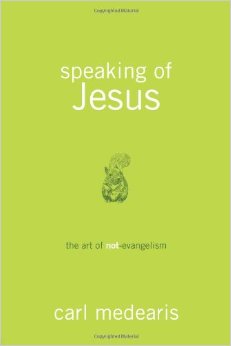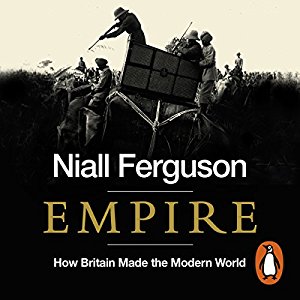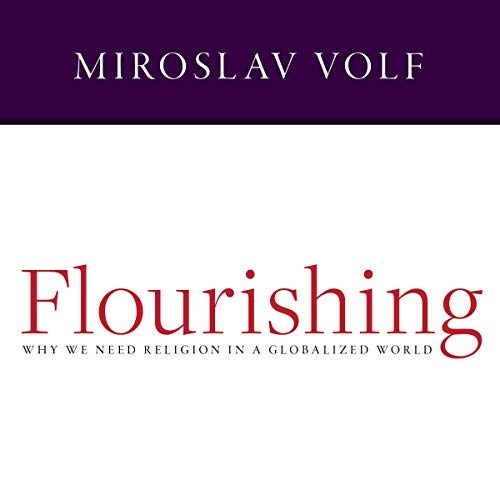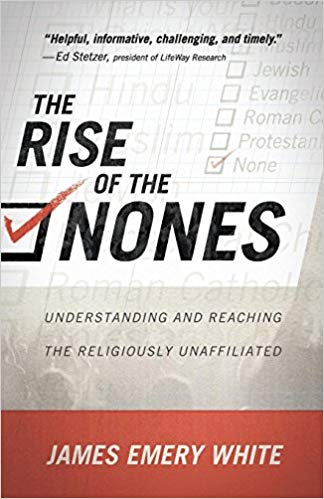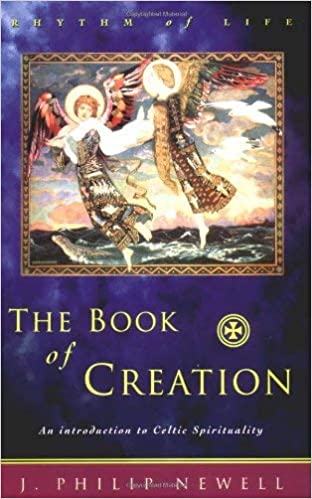Using numerous personal life stories Carl Medearis is able to share with his readers how he was able to disarm, relate to, and welcome into friendship Muslims, gay activists, and anyone else that would normally have a pretty big axe to grind against Christianity. How is Carl able to make friends out of sworn enemies so effectively? His answer is very simple: Jesus. Carl isn’t interested in turning people into Christians, he is interested in sharing Jesus.
What I liked:
Its all about Jesus: Carl has learned through personal experience, that Jesus is the only word connected to Christianity that still has a good reputation. All other words are completely sullied. In addition to all of his life experience, he further backs up this claim by sharing the results of his many anecdotal surveys. “What do you think about Christianity?” he asks 50 people on the street one day. He gets only negative responses. Then he asks 50 more people. “What do you think of Jesus?” He gets nothing but positive. Terms like Christian, missionary, evangelism, bible, religion and church are all words that are more trouble than they are worth when introducing people to Jesus. Following Jesus is not about understanding everything in the Bible, affirming complex theological truth, or pledging allegiance to a certain denominational system, it’s about learning to love Jesus. Carl is very helpful in reminding us of this.
No more “Us and Them” Thinking: “Us, Them” terminology is not helpful. Carl acknowledges that he Bible speaks regularly of the sheep and the goats, and of those who are saved and those who are not, but Carl doesn’t think we should. The “in and out” thing is God’s department, not ours. A better way is to think less about the line that determines who is in and out, and more about orientation. The goal of the follower of Jesus is to help other people orient themselves in a direction towards Jesus.
What I am not sure about:
Scripture, the words in red, matter most. He prioritizes the words of Jesus above everything else. What Jesus said, is way more important than what is said in the book of Numbers for example. Fair enough, but then he goes and shoves the words of Paul to the back of the bus with Numbers! the message is clear. Don’t listen to Paul near as much as you listen to Jesus. I understand the need to prioritize Scripture based on things like context and genre. But isn’t what God spoke through Paul or James equally important to what God spoke through John, Matthew, Mark or Luke? Carl says “No” The Jesus words that you find in your red letter edition are the ones that matter most. I’m not so sure. Is it ok to relegate certain parts of the N.T. to the back of the bus based on how many actual quotes of Jesus they contain? I hesitate to sign on. Carl is not saying that Paul’s words are unimportant, but he is saying that they are not as important. To me they are, because all of it is God’s word, and all of it points to Jesus.
Jesus as a human is to be emphasized the most. Carl bemoans the fact that we as Christians have rushed to deify Jesus. He thinks we should embrace the humanity of Jesus a lot more readily. People connect to the real person of Jesus, and from the place of his humanity they grow in their allegiance to him. To make Jesus God to quickly turns people off. OK. I get that, Jesus is human. Love that truth, but John, for example, starts his gospel off making the case for the deity of Jesus — he doesn’t slowly lead into it either. Boom! “In the beginning was the Word…and the Word was God.” Is he making a mistake by being so bold? Of course not. I think we have to hold the deity of Jesus and the humanity of Jesus with vigilant equality. More than one heresy has started with a lean to one side or the other
Love the Terrorists:
Several times he talks about Jesus’ words to love our enemies and applies them directly to our current world of terrorism. It does no good to bomb the sand out of the middle-east, Carl says. What did Jesus do with the terrorists of the day? He welcomed them into this inner circle. What does that mean? What does that look like for us today? How does this observation apply? Carl gives no answer. But I guess that is a bit like what Jesus did also.
